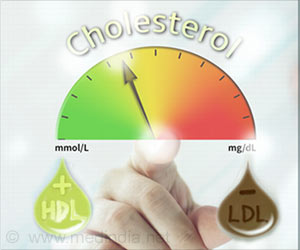A type of cholesterol that has been thought to be bad due to increased risk of heart disease and other conditions could instead be a ‘good guy’.

According to Meyer, the medical research community has traditionally believed that oxidized LDL plays a pivotal role in that process.
"Oxidized LDL moves rapidly into arterial walls and engorges them with cholesterol," explains Meyer. "Cholesterol ultimately converts into plaque, blocking the arteries or, in a worst case scenario, rupturing and sending clots into the bloodstream, causing heart attacks and/or strokes."
However, more recent studies in animals and humans have brought that assumption into question, and the oxidized LDL theory is currently the subject of lively debate.
"Though in its very early stages, our research will add considerably to that controversy," Meyer says, "because it seems to indicate that oxidized LDL might in fact be a 'good guy' in the process."
The team's findings come from a project studying a pathway of cholesterol transport called "selective lipid uptake."
Advertisement
Meyer says the implications of the study are potentially profound.
Advertisement
Meyer and van der Westhuyzen's findings were published in the August issue of the Journal of Lipid Research.
Source-Eurekalert














